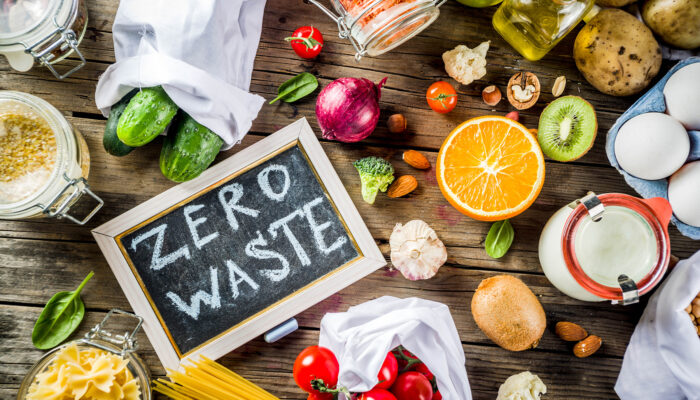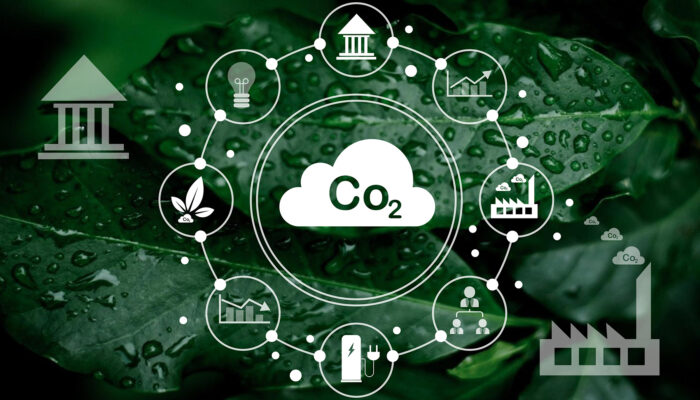The populations of vital pollinator insects such as bees, wasps, and butterflies are facing an alarming and unsustainable decline due to the combined impacts of climate change, habitat loss, and the heightened use of pesticides. A recent study jointly conducted by the University of Maryland and Auburn University sheds light on the severity of this crisis. Honeybee hives endured the second-highest mortality rate in the last 12 years, losing 48% of colonies during the latest survey year from April 2022 to April 2023.[1] These figures mark a stark escalation from the 12-year average of slightly under 40%. The worsening plight of honeybees is even more severe in certain regions, where a phenomenon known as colony collapse disorder has led to losses of up to 90% over the past 15 years.[2]
These declines have triggered mounting concerns regarding the future of our food system due to the indispensable role bees and pollination play in food production. Roughly one-third of global food production depends on pollinators, particularly bees, to pollinate plants and trees, with the economic value of this intricate process translating to a staggering €153 billion.[3]However, a new vertical within Agri-tech is now coming to the fore, introducing innovative and unconventional approaches to pollination that can pollinate crops more effectively and efficiently and potentially mitigate the gap left by the declining bee population.
AI/IoT-powered software solutions
Bee pollination is a complex and intricate process that requires consideration of various factors such as farm location, crop types, and beehive placement to optimise farmer yields and bee health. These considerations must also be weighed against the conditions within bee colonies and hives. According to a study by Michigan State University, optimizing pollination can increase blueberries yields by 20% – 30%[4]* and another study found an increase of 50%[5]* for almonds through yield optimization.
Several start-ups have emerged in this space employing different approaches to enhance the pollination process that usually combines an IoT hardware component and AI-powered software.
BeeHero, founded by a team of veteran beekeepers and technology experts, offers precision pollination as a service that helps commercial beekeepers monitor temperature, humidity, and sound inside beehives to improve the pollination process and drive higher crop yields. BeeHero’s patented approach centres on its proprietary software that applies machine learning algorithms and AI on data collected from its sensors to feed real-time information to beekeepers and growers about the health and status of their hives. Its custom-designed sensor technology can predict when a hive is about to swarm or experience stress, helping beekeepers keep their hives healthy and strong. In a recent sunflower trial by BeeHero, using the platform has led to a 22% increase in farmers’ revenue and 27% reduction in the number of hives deployed.
Beewise is another leading player introducing a more extensive hardware element known as the Beehome. Beehome is a comprehensive smart beehive system housing 24 colonies that combines hardware and data-driven insights to enhance the honeybee pollination ecosystem. The system monitors bees 24/7 and remotely administers real-time treatments and care for bees according to their needs.
Robot pollinators
Robot pollinators represent a ground-breaking advancement that could transform pollination in the high-value, specialty crop segment. While artificial robot pollination might seem like a concept drawn from science fiction, it follows the same well-established artificial insemination process practiced in the dairy industry. It consists of two key phases:
Phase one begins with collecting and storing pollen derived from the male floral component, the stamen. This amassed pollen gets preserved for subsequent utilization. The second and final phase encompasses the implantation of this stored pollen into the female part of another plant, referred to as the stigma, at a predetermined and optimal time. The aim is to achieve precise and efficient pollination while mitigating the variables that can hinder successful pollination when left to natural processes. In addition to pollination, robots play a pivotal role in mitigating the risk of disease transmission. This is achieved through an innovative air-blast pollination method that fertilizes flowers without direct physical interaction.
While certainly there are advantages to using robots as pollinators, the model is yet to prove economically viable and might need another few years to become economically viable. Startups like BeeHero have also been levelling the field for natural pollinators against robotic ones. It is enabling access to pollination data through its in-field sensors which is a key component to optimizing yields.
The California-based start-up, Dropcopter uses advanced delivery technology and specialized drones to pollinate various crops, including almonds, apples, cherries, and pears. The company’s drones come equipped with pollen-dispensing systems that can pollinate up to 20 acres per hour with a pollination cost per acre of approximately $300.
Israeli company Edete has developed an end-to-end artificial pollination service that harvests and stores pollen from flowers without contamination and dispenses it onto plants at the optimal time for germination. The company has successfully tested its robots in commercial orchards across Israel and the US.
Enhancing bee health & resilience
Innovative start-ups are also looking to shore up the honeybee population and subsequent pollination crisis through advanced technologies designed to bolster bee strength and resilience. These initiatives encompass a range of approaches, from deploying systems to protect bees from biological threats to mitigating the impact of detrimental pesticides on bee health and increasing bee resilience to the fluctuating climatic conditions caused by climate change.
Beeflow is a leading start-up in this space that leverages proprietary technology and scientific research to make bees healthier and their management more intelligent. The company has developed a nutrient-packed superfood supplement that improves bees’ immune systems, reducing mortality rates by up to 70% and helping them perform better in colder weather. Beeflow also offers ToBEE, a product that “trains” bees to target specific crops like blueberries or almonds.
Another exciting player that offers a more sustainable and effective option for pollination than traditional beekeeping is Biobest Group. The company has developed the Flying Doctors Hive, a patented system for farmers to increase crop yields and improve crop quality. The hive contains a premium quality colony with a dispenser system comprising biopesticide or pollen at the entrance. When the bumblebees leave the hive, they pass through the dispenser system and pick up the biopesticide or pollen. The bumblebees then carry the biopesticide or pollen to the crops, spreading it to the plants to control pests and diseases or deliver pollen to improve pollination.
A new opportunity blossoms
According to the Food Agriculture Organisation (FAO), meeting global food demand in 2050 will require a staggering 60% increase in agricultural production.[6] Yet the encroaching impact of a warming climate is casting a shadow on the ability of our food and farming systems to deliver such an increase, with climate change projected to reduce crop yields by between 10% to 20%.
Overcoming this predicament necessitates finding sustainable alternatives for our value chain – a realm where bees play an indispensable role. It’s estimated that between $235 and $577 billion worth of annual global food production hinges on pollination from honeybees, native bees, other insect pollinators like flies, butterflies, and moths, delivering food and billions of dollars in economic value to millions worldwide.[7] Emerging innovations and technologies in pollination highlighted in this article can enhance bee health and well-being and provide new ways to pollinate crops more effectively and efficiently. Innovations have so far focused on specialty crops leaving more work to be done to address the wider market. Startups will play a key role in helping us meet our future food production needs amid the continued decline in bee numbers.
Learn more about us.
View our transactions.
*[4] Arrington, T.J., DeVetter, S.R., and Isaacs, R.G. 2019. Effects of pollination strategies and timing on yield and fruit quality of highbush blueberries. Horticulture Technology 29(2): 192-199
*[5] Williams, M.A., et al. 2015. Pollination of almonds by honey bees and mason bees increases yield and improves fruit quality. Nature 521: 539-542










